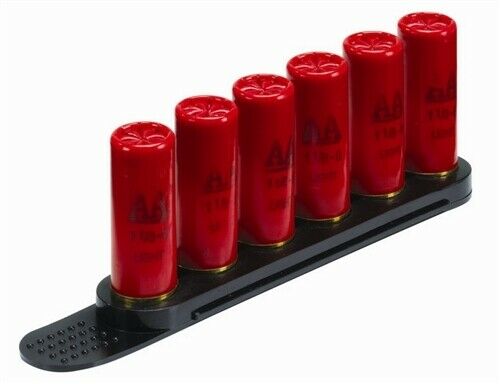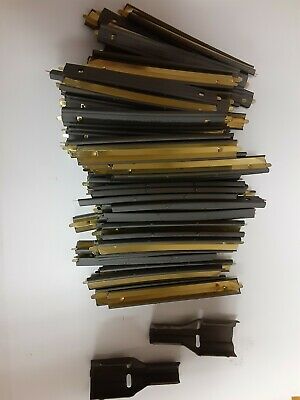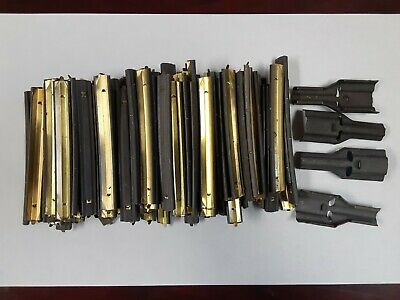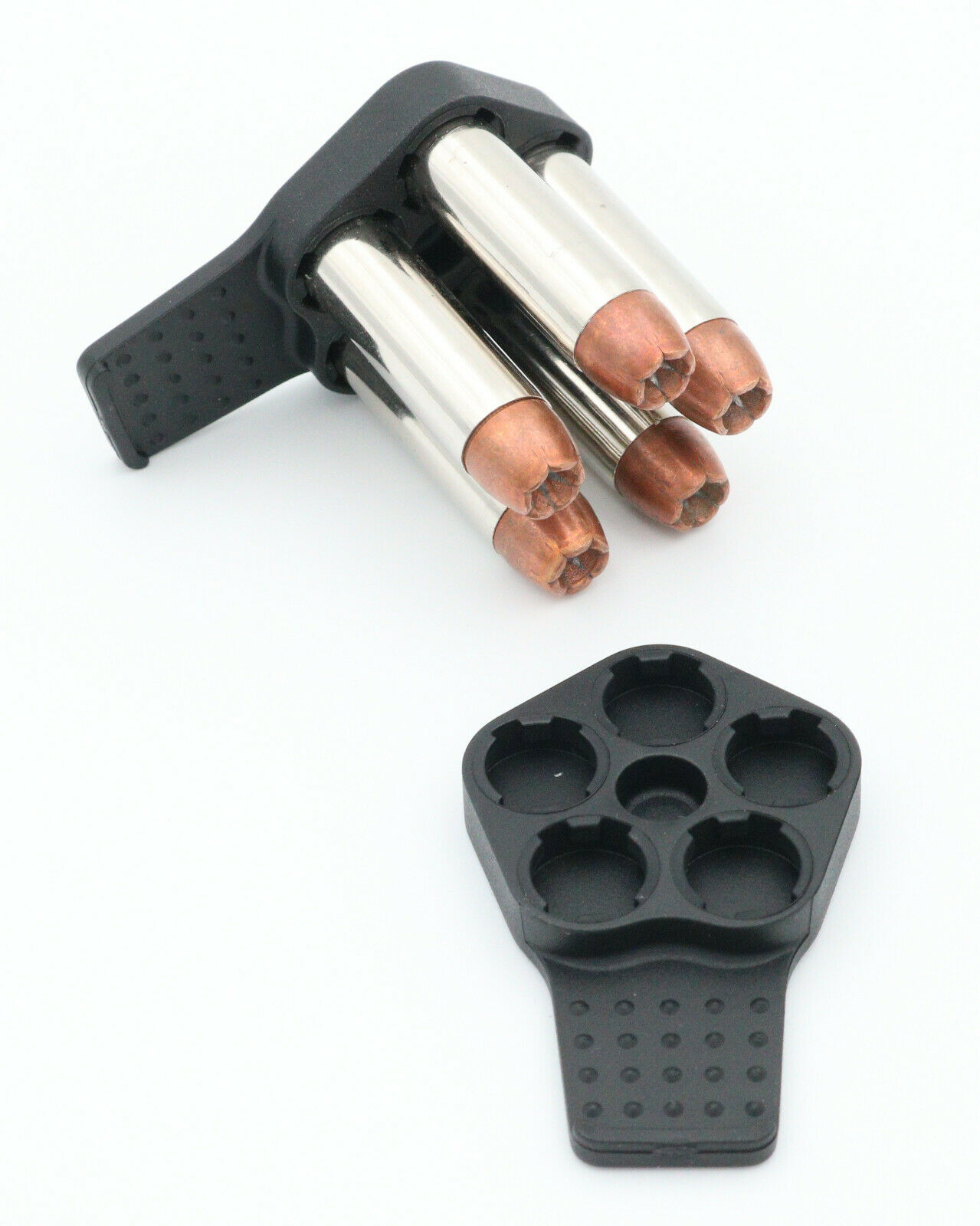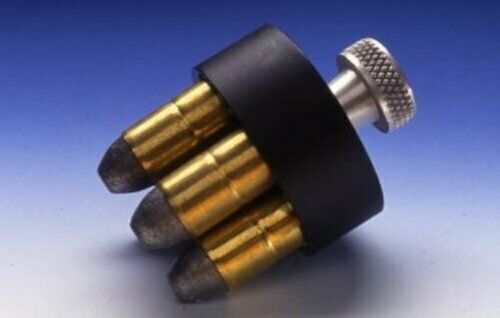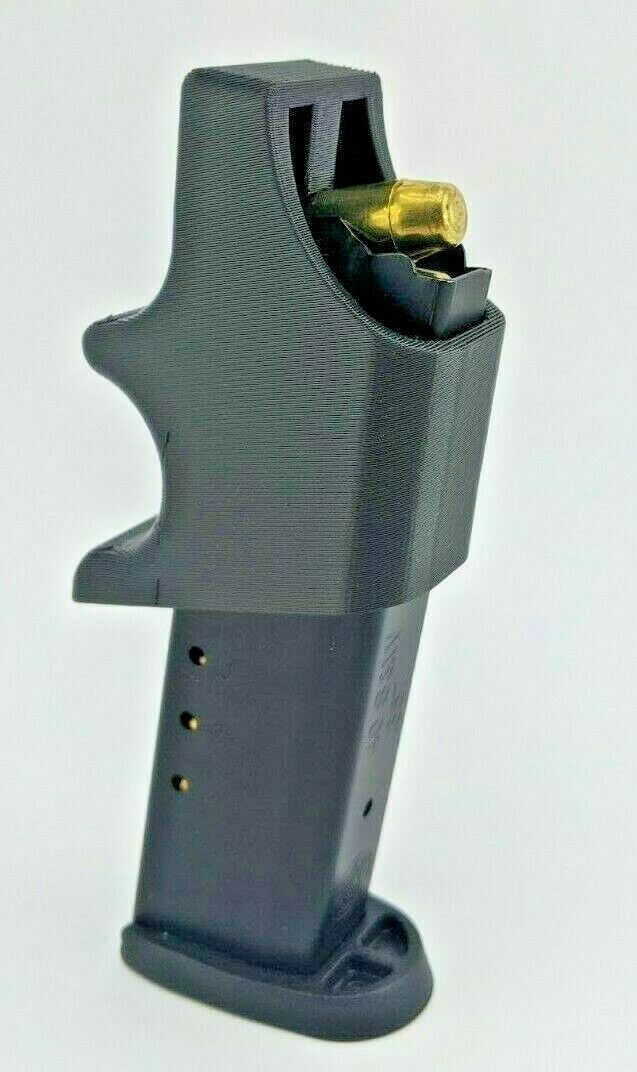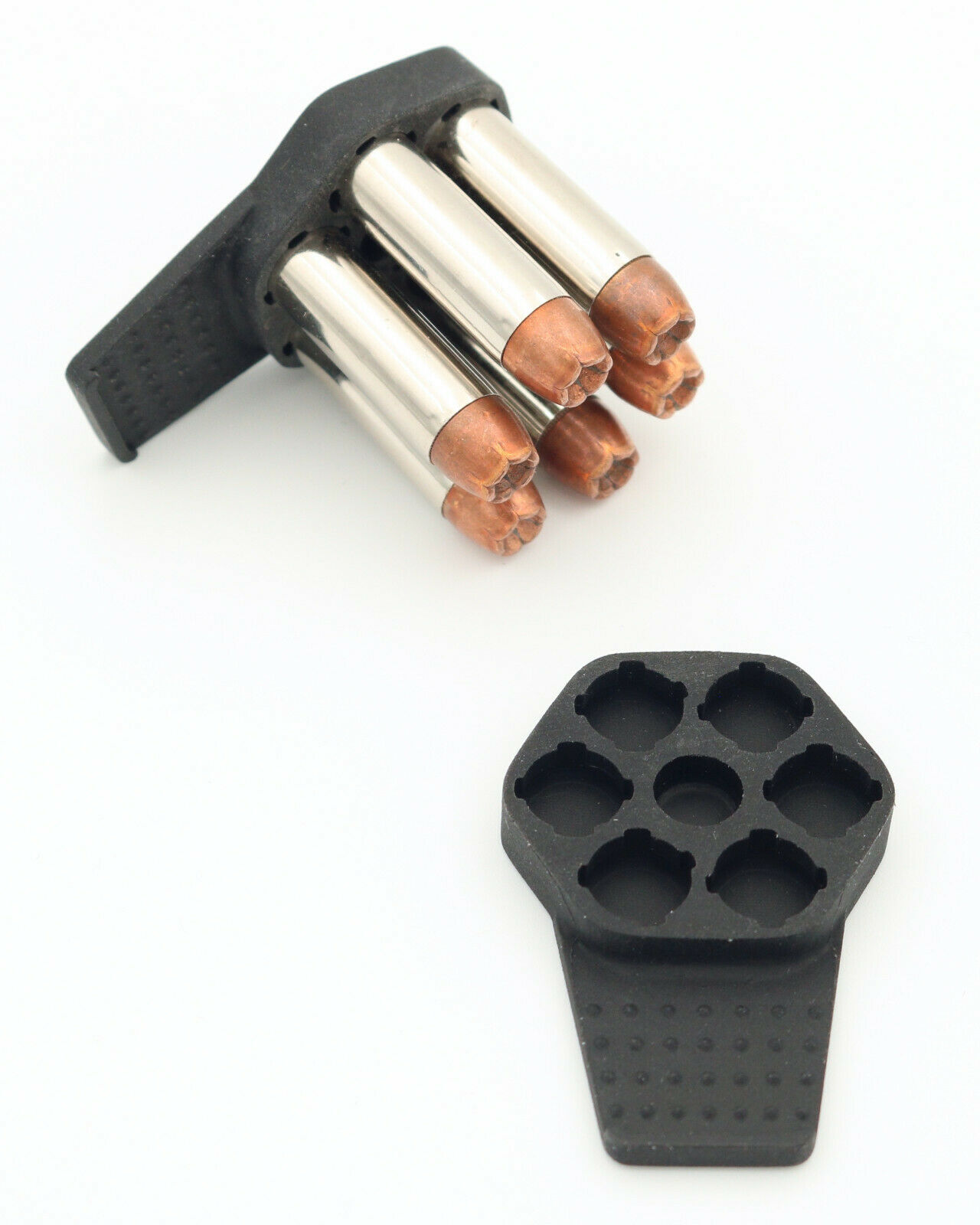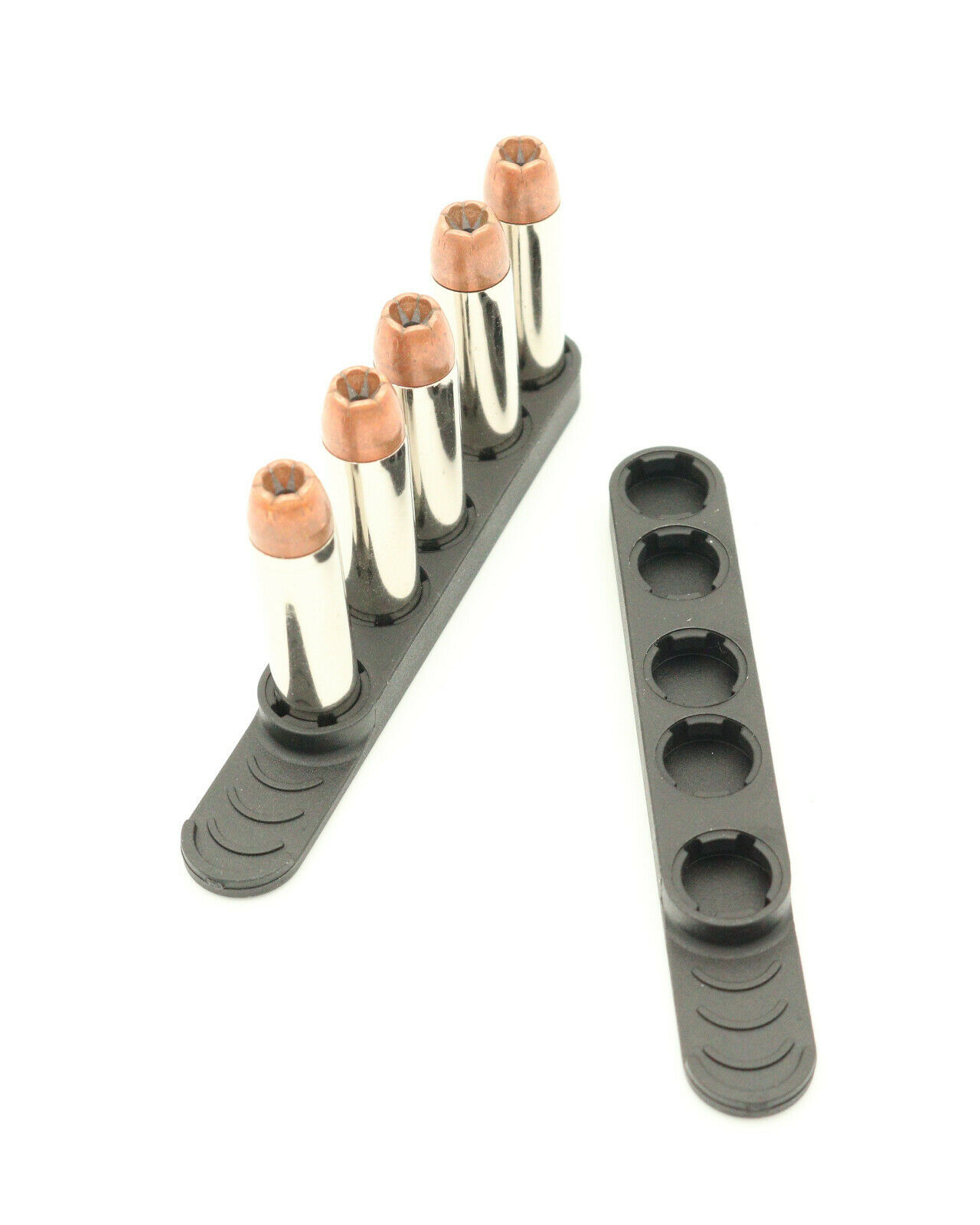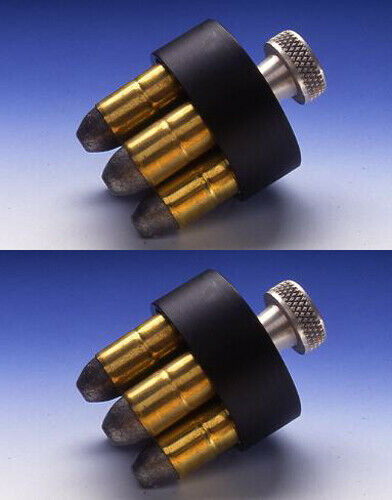-40%
(2 PACK) Tuff™ QuickStrips™ Speed Strips for 10, 12, 20, or .410 Gauge Shotguns
$ 6.32
- Description
- Size Guide
Description
Tuff™ QuickStrips™ Speed Strips for Shotgun Shells,2 pack, shells not included.
✔
NEW
✔
Low Price
✔
U.S. Shipping
✔
Authorized Dealer
Tuff™ QuickStrips™ help to speed your reload and are proven to be the most compact and convenient way to carry and store spare ammo to reload revolvers, single shot rifles and shotguns. Injection molded from a flexible urethane material and loads two at a time. Each Set contains 2 QuickStrips™ Available in
Black
or
Orange
.
5 Models to choose from
(use drop-down menu to select):
#610G
- 6 ROUND 10 GAUGE
#612G
- 6 ROUND 12 GAUGE
#620G
- 6 ROUND 20 GAUGE
#544
- 5 ROUND .410 GAUGE
#644
- 6 ROUND .410 GAUGE
2 Colors to choose from
(use drop-down menu to select):
-- use different colors for different loads.
Black
Orange
NOTE: Stock images shown, may not be exact model, color, nor quantity ordered. There are two QuickStrips included. Ammo not included.
******* 10 Tips & Tricks for the TUFF QuickStrips *******
Before attempting any of these loading tips practice with dummy rounds until you feel comfortable with the techniques. Always train in a safe area and always keep your muzzle in a safe direction.
Tip # 1
- Filling the Quick Strip Start with the Quick Strip along the length of your non-dominant hand's index finger. While holding the base of the cartridge at an angle, insert the edge of the rim into the holding hole of the Quick Strip. Once the edge of the rim is in the holding hole, lever the remaining portion of the rim into the holding hole. Move to the next holding hole and repeat until you have filled the Quick Strip. Keep in mind that you do not load the revolver by forcing the rounds off the Quick Strip by reversing this filling method. See Tip No. 2 for reloading information. A shooter has five options for pealing or prying off the rounds from the Quick Strip and loading them into the cylinder's charge holes. Of these five here are two that are the most reliable.
Tip # 2
- Reloading with the Quick Strip - Method One 1 - Load the strip with one round and as near in the middle of the strip as you can. 2 - Open the revolver and insert the round into a charge hole. 3 - Then let go of the strip completely (This is a learning drill so we won't be making this a habit.) 4 - Place your thumb directly over the round being sure to keep the pad of your thumb directly over that part of the Quick Strip that is holding the round. 5 - Peal off the strip in a straight line toward you. Remember to keep your thumb on and directly over the round while you are pealing the strip off. 6 - Keep pealing in a straight line until the rounds come loose from the strip. The round will be resting in the charge hole. Once you have practiced this a few times you can repeat it with two, three, four or five rounds. Avoid using any alternative--Twist parallel to the face of the cylinder-- technique to reload with the Quick Strip. Doing so will only risk peeling off rounds not secured in the cylinder's charge holes and causing you to drop them to the ground.
Tip # 3
- Single Round Indexing Exercise This is a simple two-part self-defense exercise that will require a friend with either a stop watch or a PACT style timer. Load a single round into the Quick Strip in any of the holding holes except the first or the last in line. Have your friend start the clock at the same time he gives you the --load-- signal. Load the single round in any available charge hole and discard the Quick Strip. When the round is in the cylinder's charge hole, manually index the cylinder so that with the next pull of the cylinder the round will come under the hammer. Aim in a safe direction and fire. Have your friend record the time from the --load-- signal to your first shot. Now repeat the drill only after loading the cylinder with one round from the Quick Strip make no effort to mechanically index the cylinder. Simply close the cylinder and trigger through the empty charge holes until the round rotates to the fire position. Remember to keep the muzzle pointed at your target and in a safe direction. Again, have your friend record the time from the --load-- signal to your first shot. Compare the lag time between manually indexing the round versus reflexively triggering past the empty charge holes. You will almost certainly find the triggering through is faster than manually indexing the next available round. This might be a valuable time management skill in an emergency.
Tip # 4
- A Paired Round Loading Exercise Too many shooters are unaware that the spacing of the holding hole on the Quick Strip will permit them to load two rounds into the cylinder's charge holes simultaneously. Confirm this by loading several Quick Strips with two rounds only. Position both rounds side-by-side near the center of your Quick Strip. Keeping the muzzle pointed in a safe direction, and practice opening the cylinder and inserting both rounds into two side-by-side charge holes. Reload the cylinder with these two rounds by using the same method described in Loading Tip #2. With a little practice dropping in two rounds simultaneously will become second nature.
Tip # 5
- Interrupted Loading Exercise This is another fun and practical self defense drill. This will require another revolver armed shooter and a safe, live fire range. With your friend in the next shooting bay load your Quick Strip with three rounds all side-by-side and centered in the middle of the Quick Strip. On an agreed upon signal both shooters open their cylinder and start loading their rounds. The first shooter to load all three rounds discards the Quick Strip, closes the cylinder and starts shooting at their respective target. When the first round from the faster reloading shooter goes off, the second shooter must immediately suspend reloading any more rounds. As long as at least one round in in the cylinder he must discard the Quick Strip --as is-- and start firing on his respective target. Most shooters regularly practice shooting quickly but few ever practice reloading quickly or returning to the fight with a --less than full-- cylinder. Hearing your shooting partner getting back into the fight before you can be an amazing wake-up drill to the importance of speedy reloading. If you should happen to beat your partner in this load-three-and-shoot drill, then repeat the drill only this time you load four rounds to his three. This is a fun and practical training exercise.
Tip # 6 - Four Round Loading Exercise Load your Quick Strip with four rounds all side-by-side. Keep at least one holding hole on both ends of your Quick Strip open depending on whether your Quick Strip holds six or more rounds. Again you will want the aid of a friend with either a stop watch or a PACT style timer. Upon the signal open your cylinder and load in two rounds simultaneously then add in the next two. Discard the Quick Strip and shoot your target. Why practice loading four rounds into a five or six round snub? Because too many shooters make the mistake of assuming that a five round snub loaded with four rounds is only 80% loaded. This is dangerously untrue. A five shot snub loaded with four rounds is loaded 100% four times over. Also consider the reloading speed advantage. The shooter trying to load that single remaining round into that single remaining charge hole requires time out of proportion to loading those first sets of paired rounds. When loading the first two rounds the shooter has five sets of charge holes to choose from (1-2, 2-3, 3-4, 4-5 or 5-1). After loading the first two charge holes the shooter still has the choice of two sets of remaining charge holes (1-2 or 2-3). Closing the cylinder now and getting back onto target will save a disproportionate measure of time. Maybe someday vital time.
Tip # 7
- Four Round Loading Exercise - Part II This is a simple self-defense mindset exercise you can test on a willing range partner. Load your Quick Strip with four rounds as described above. On the range give your friend the following direction: --On the signal, load your snub as quickly as possible.-- When the shooter is ready, give him the load signal. If your shooting partner is like most shooters he will take the time to load all four rounds (remember that 100% loaded four times over item from above? ) rather than --load-- one or two rounds quickly and getting back on target. Remember the command was to --load-- and as noted above a single round makes that revolver loaded 100%. Remember that one or two rounds now might be of greater value than four or more rounds later. Look into the Newhall, CA shooting to confirm this.
Tip # 8
- Reloading with the Quick Strip - Method Two There are two schools of thought on reloading with the Quick Strip. Loading Tip #3 describes one. Here is another one from the shooting legend and master firearms trainer, Massad Ayoob. 1 - Load your Quick Strip with five rounds, while keeping the holding hole closest to the Quick Strip's flange tab empty. 2 - Holding your unloaded and open revolver in your non-shooting hand. 3 - Hold the Quick Strip in your shooting hand with your thumb and ring finger holding the sides of the Quick Strip. Place your index finger along the back of Quick Strip, with its flange tab closest to your wrist. 4 - Insert the two side-by-side rounds that are under your index finger into two side-by-side charge holes of the cylinder. Keep the pad of your index finger on the Quick Strip and directly over these two inserted rounds. 5 - Lever out the rounds by peeling the Quick Strip forward and away from you. Remember to peel in a straight line in relationship to the strip and do not attempt to twist rounds out of the Quick Strip. 6 - When the first two rounds fall into the cylinder's charge hole, insert the next two rounds in the same fashion but do not attempt to remove these two rounds yet. 7 - Release the sides on the Quick Strip and pinch that part of the unloaded Quick Strip's that a moment ago held the first two released rounds. With the pad of your thumb over the two new rounds peel the strip in a straight line back toward you and your center line. Remember to keep the pad of your thumb on that portion of the Quick Strip that is holding these two fresh rounds. Load your last round in the same fashion you just loaded the above two rounds. Discard the Quick Strip and return to the target.
Tip # 9
- Ball and Dummy Exercise Flinching is the universal curse of all shooters. A useful Quick Strip drill to address this is to randomly drill with a quantity of dummy rounds an equal number of live rounds when shooting on the range. Have a friend load up a quantity of Quick Strips, randomly mixing in dummy rounds with the live rounds. If you focus on the target you will not notice which rounds you are loading are live and which are dummy rounds. You will also be developing an important self-defense skill by watching the target rather than the cylinder. By introducing a number of dummy rounds you can double the number of your range loading drills, cut the cost of your range expenses and reinforce your good shooting by exposing any possible flinch you might be developing.
Tip # 10
- Spare Ammo Exercise More ammo is always better than less, but in many parts of the country the sight of ammunition can still frighten the ignorant. A simple trick for safe, low-profile ammunition access is to load a pair of Quick Strips and keep one in a front pocket and the second in a rear pocket. Why two Quick Strips? First, with a Quick Strip in both a front and rear pocket a shooter can access at least one Quick Strip from almost any disadvantageous position, including from face down or face up shooting positions. Second, if you are forced to load a cylinder quickly and only have time to load one, two or three rounds you are more likely to discard a partial Quick Strip and immediately return to the situation if you know you still have another loaded Quick Strip available. (Again see Newhall, CA incident) You now have ten Quick Strip loading tips. I hope you find a few of them of value and will give all of them a fair evaluation. Keep safe and good shooting.
NOTE: UPS and FedEx will not be used for deliveries to PO Boxes, APO/FPO/DPO, and the US Protectorates--such orders will either be canceled or shipped via the Postal System at our discretion.
